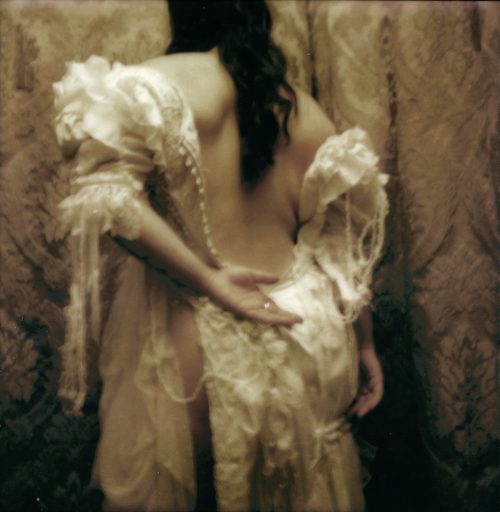
Groupshow
High Weirdness
Project Info
- 💙 Solaris Space, Berlin
- 💚 Gosia Lehmann
- 🖤 Groupshow
- 💜 Gosia Lehmann
- 💛 Rosanna Graf
Share on
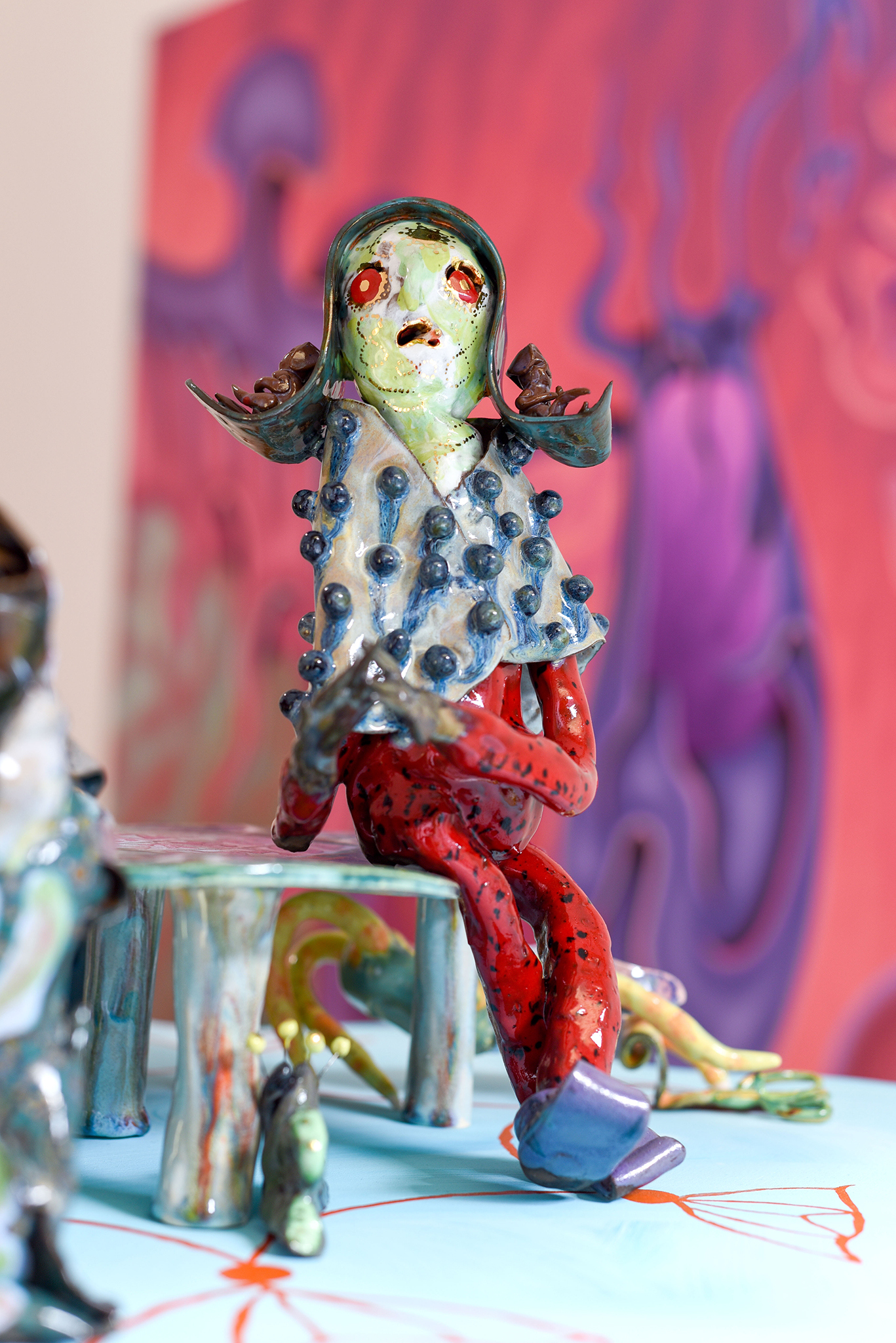
High Weirdness, Solaris Space, Berlin, 2022, Emily Hunt, Nota Flashback Tableau Vivant, 2022, painted table, ceramics, Photo: Rosanna Graf, Courtesy: the artist
Advertisement
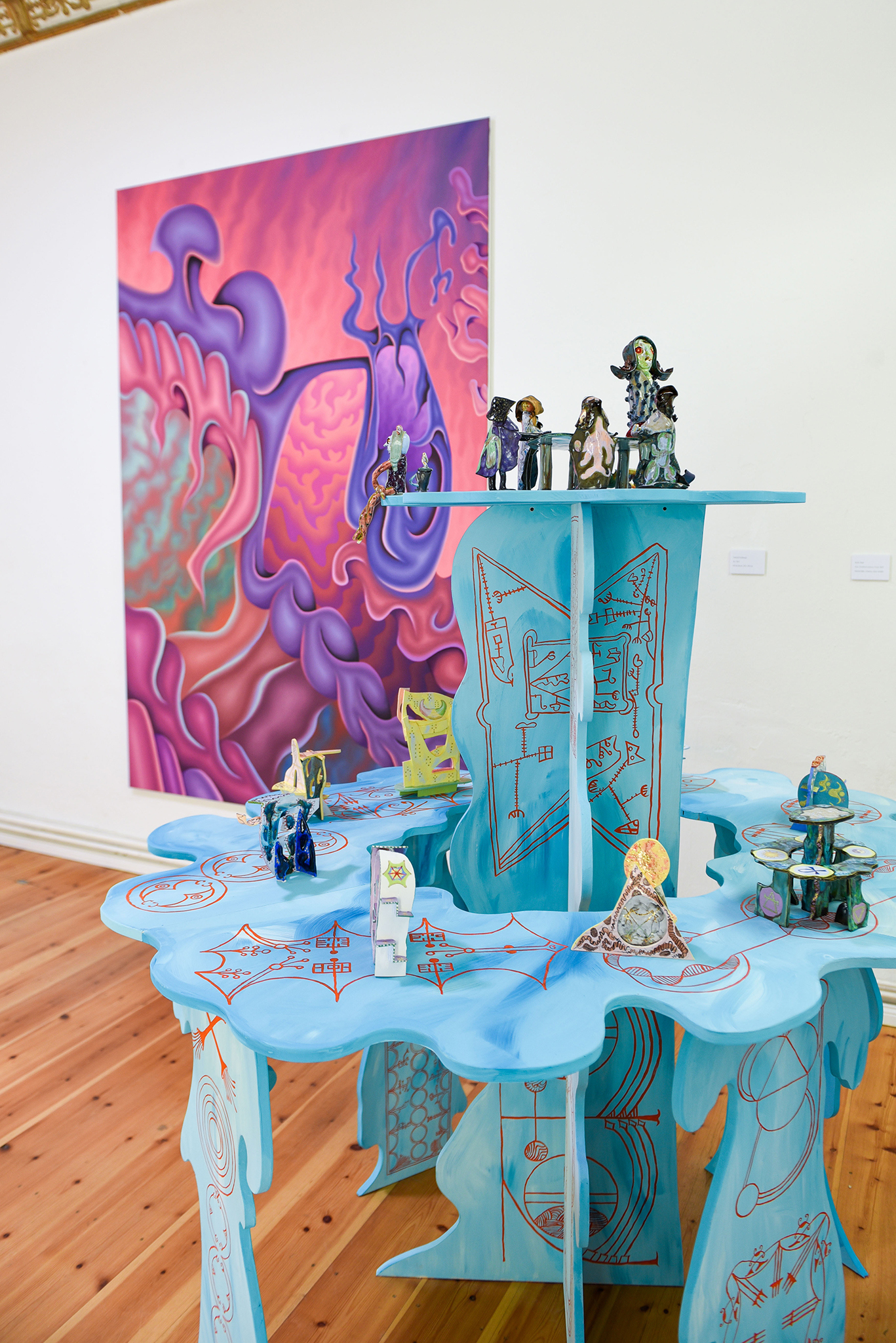
High Weirdness, Solaris Space, Berlin, 2022, Emily Hunt, Nota Flashback Tableau Vivant, 2022, painted table, ceramics & Antonia Freisburger, Superfaculag, 2022, oil on canvas, Photo: Rosanna Graf, Courtesy: the artist
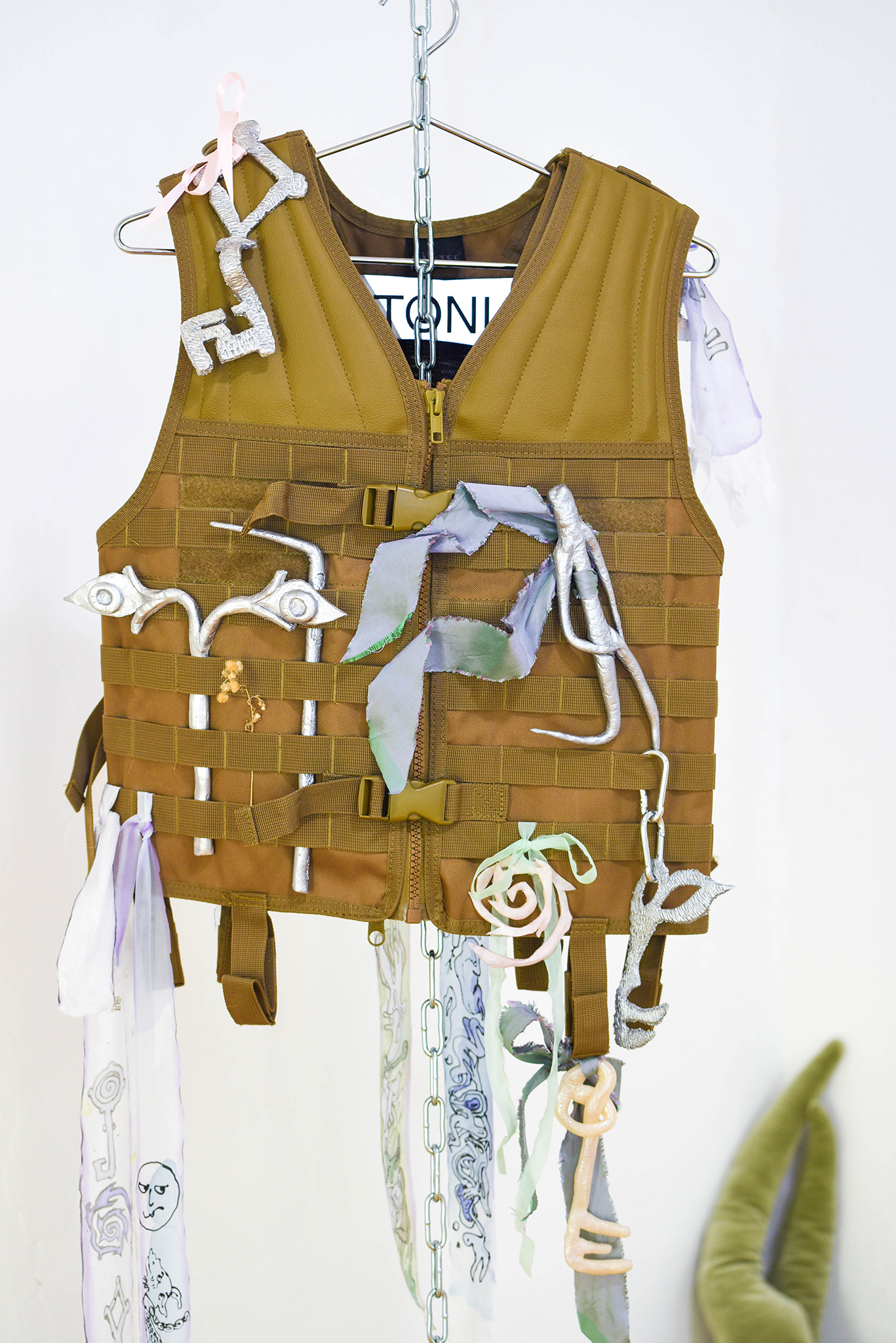
High Weirdness, Solaris Space, Berlin, 2022, Rosanna Graf, Psychoactive Ghost Hunting Attire, 2022, vests, silk, polymer clay, fleabane, eyeshadow, Photo: Rosanna Graf, Courtesy: the artist
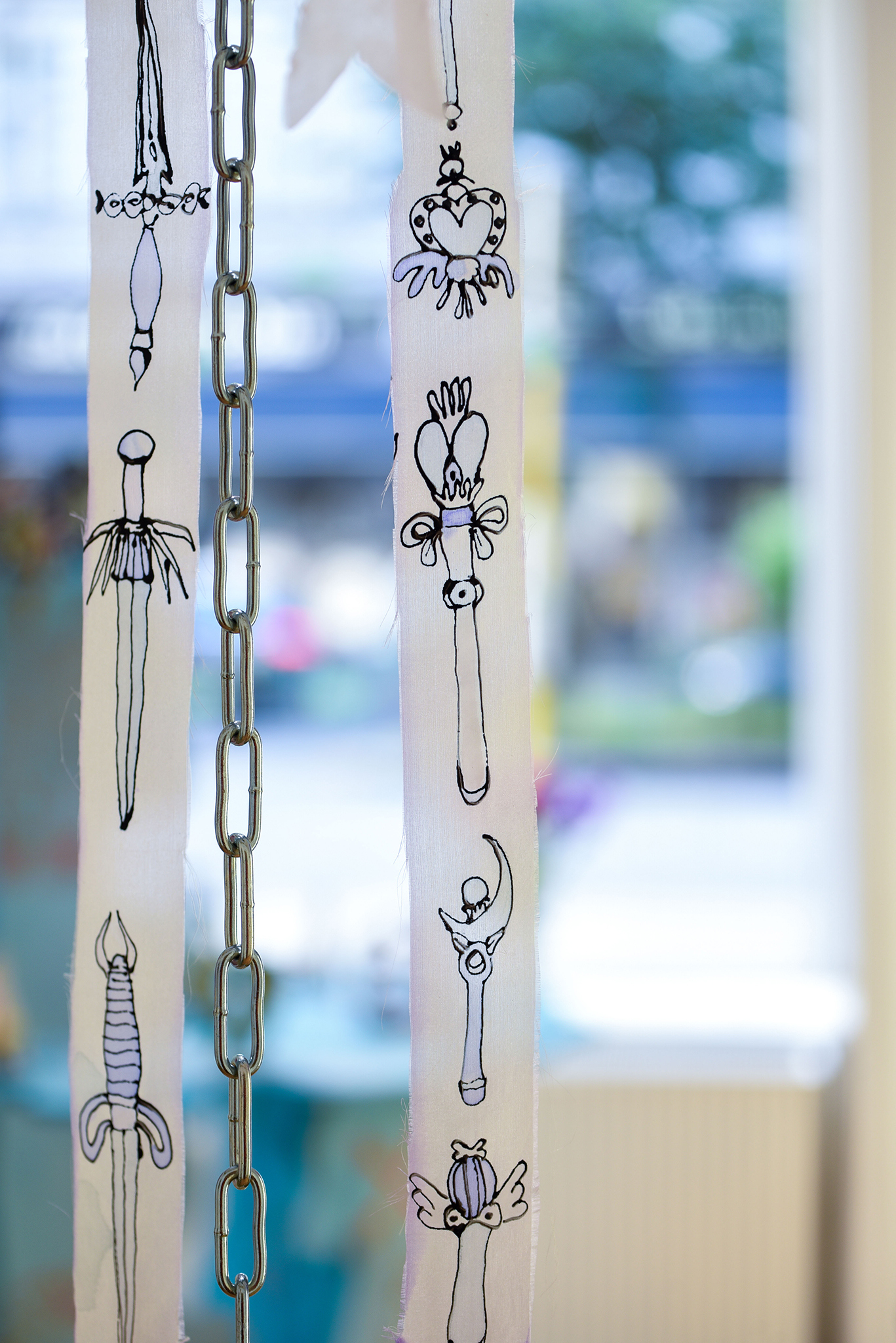
High Weirdness, Solaris Space, Berlin, 2022, Rosanna Graf, Psychoactive Ghost Hunting Attire, 2022, vests, silk, polymer clay, fleabane, eyeshadow, Photo: Rosanna Graf, Courtesy: the artist
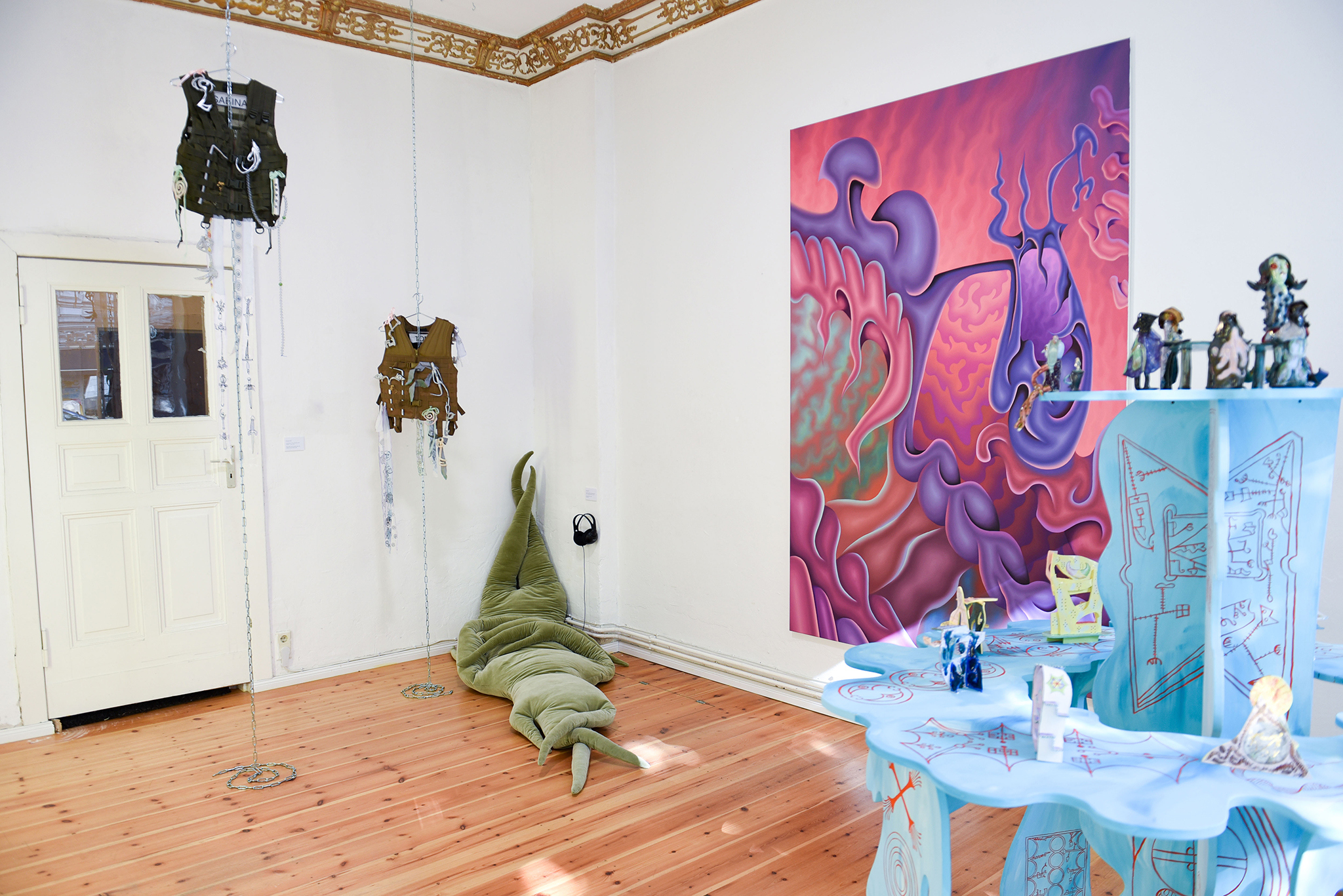
High Weirdness, Solaris Space, Berlin, 2022, Installation View, Photo: Rosanna Graf, Courtesy: the artists
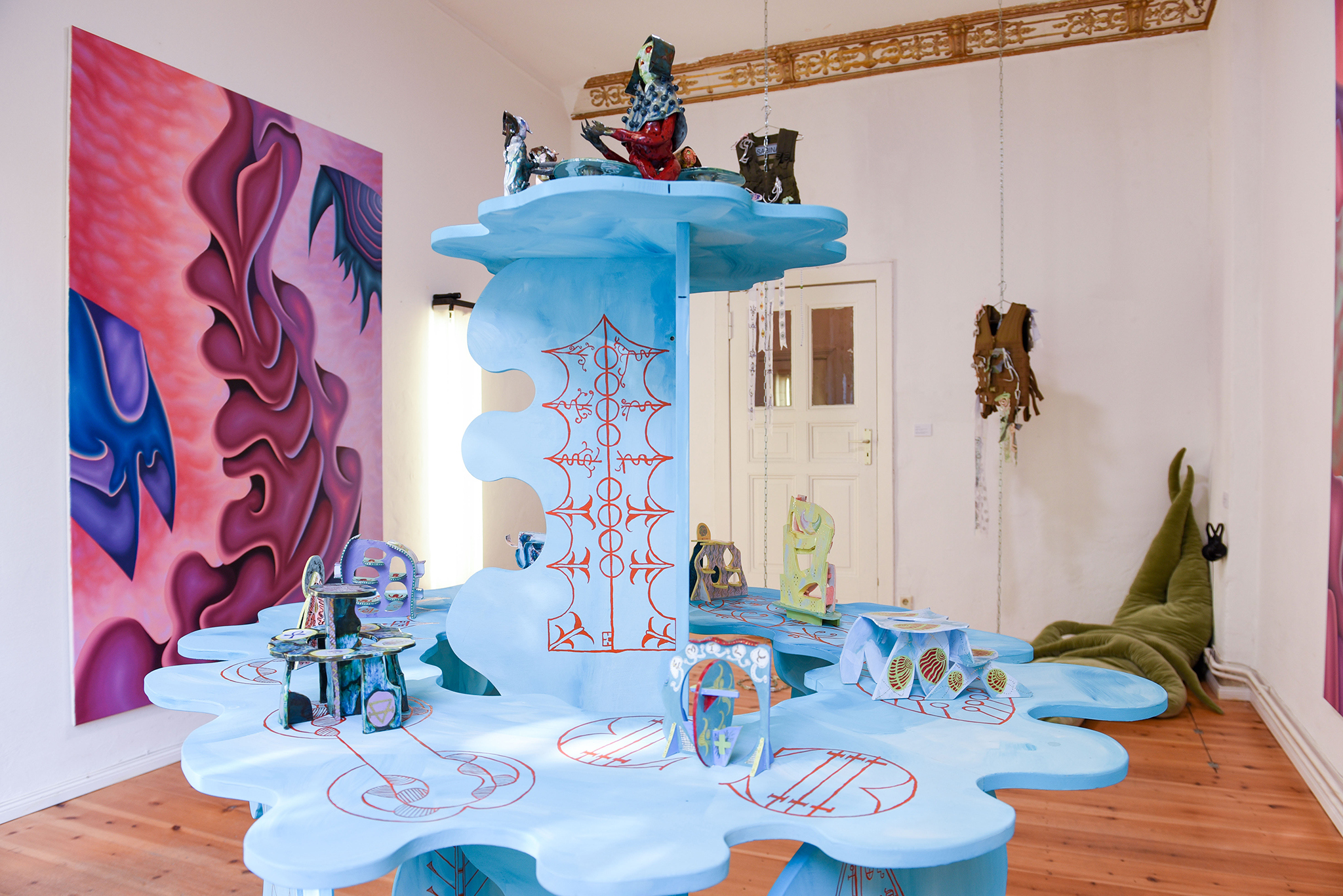
High Weirdness, Solaris Space, Berlin, 2022, Installation View, Photo: Rosanna Graf, Courtesy: the artists
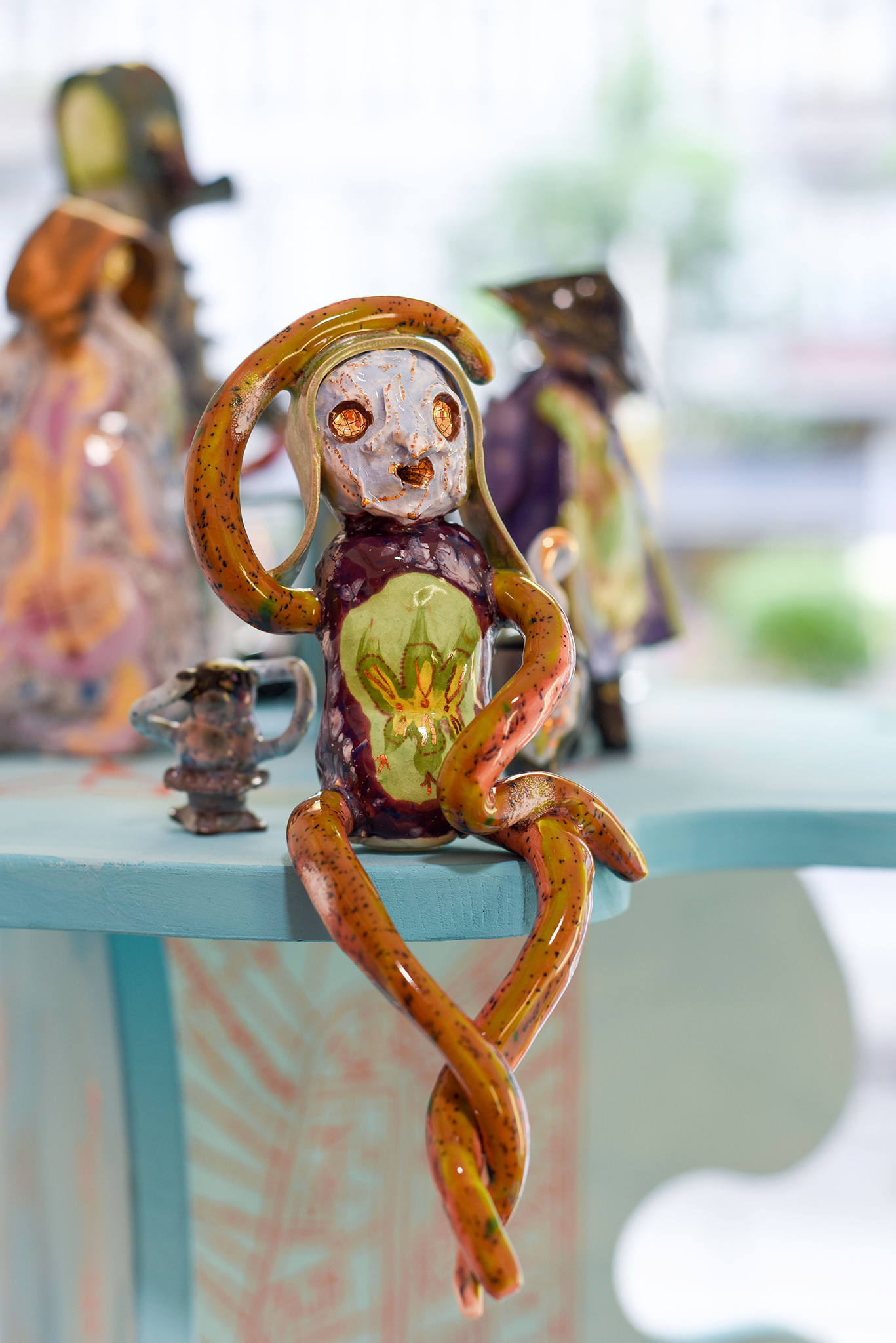
High Weirdness, Solaris Space,Berlin, 2022, Emily Hunt, Nota Flashback Tableau Vivant, 2022, painted table, ceramics, Photo: Rosanna Graf, Courtesy: the artist
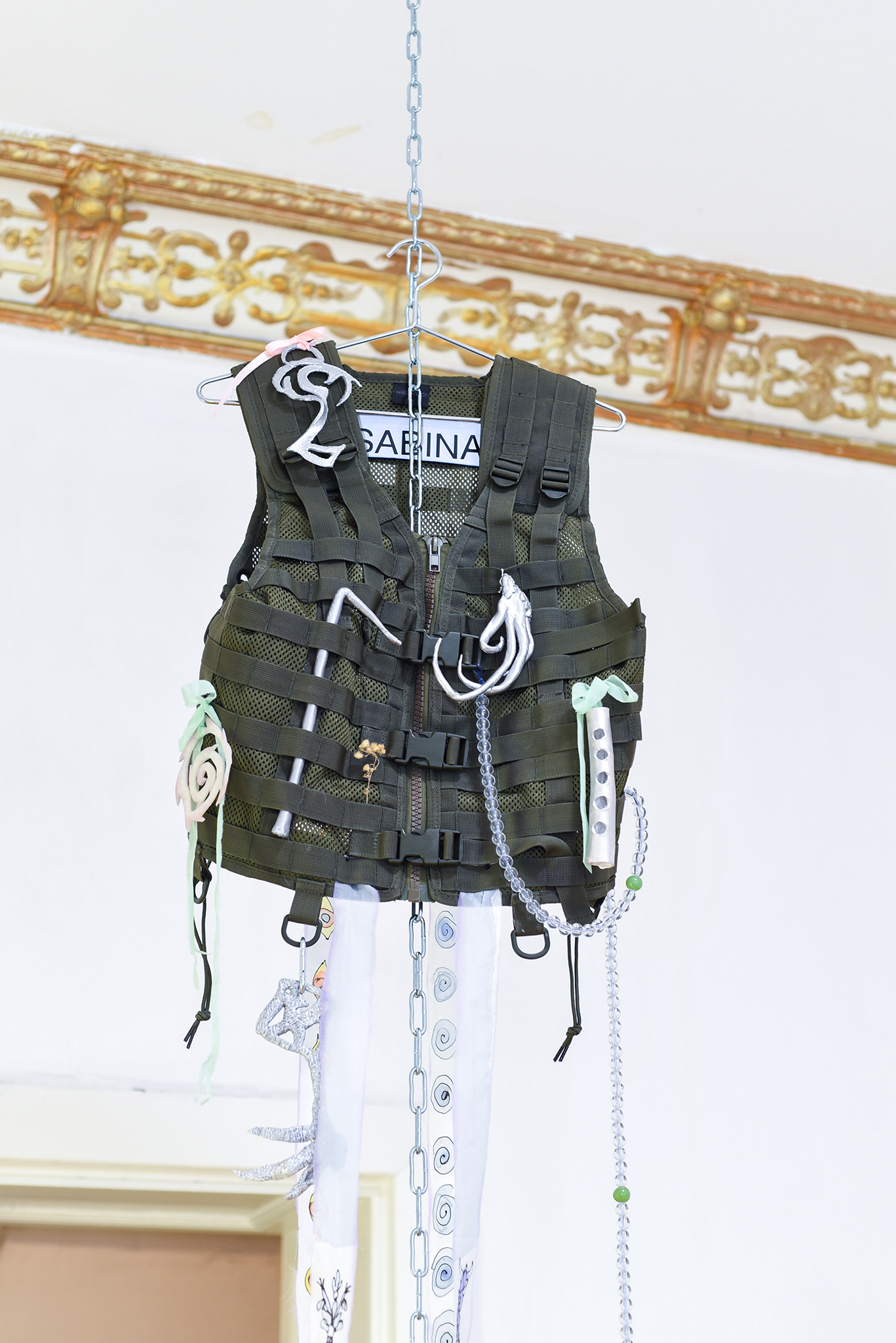
High Weirdness, Solaris Space,Berlin, 2022, Rosanna Graf, Psychoactive Ghost Hunting Attire, 2022, vests, silk, polymer clay, fleabane, eyeshadow, Photo: Rosanna Graf, Courtesy: the artist
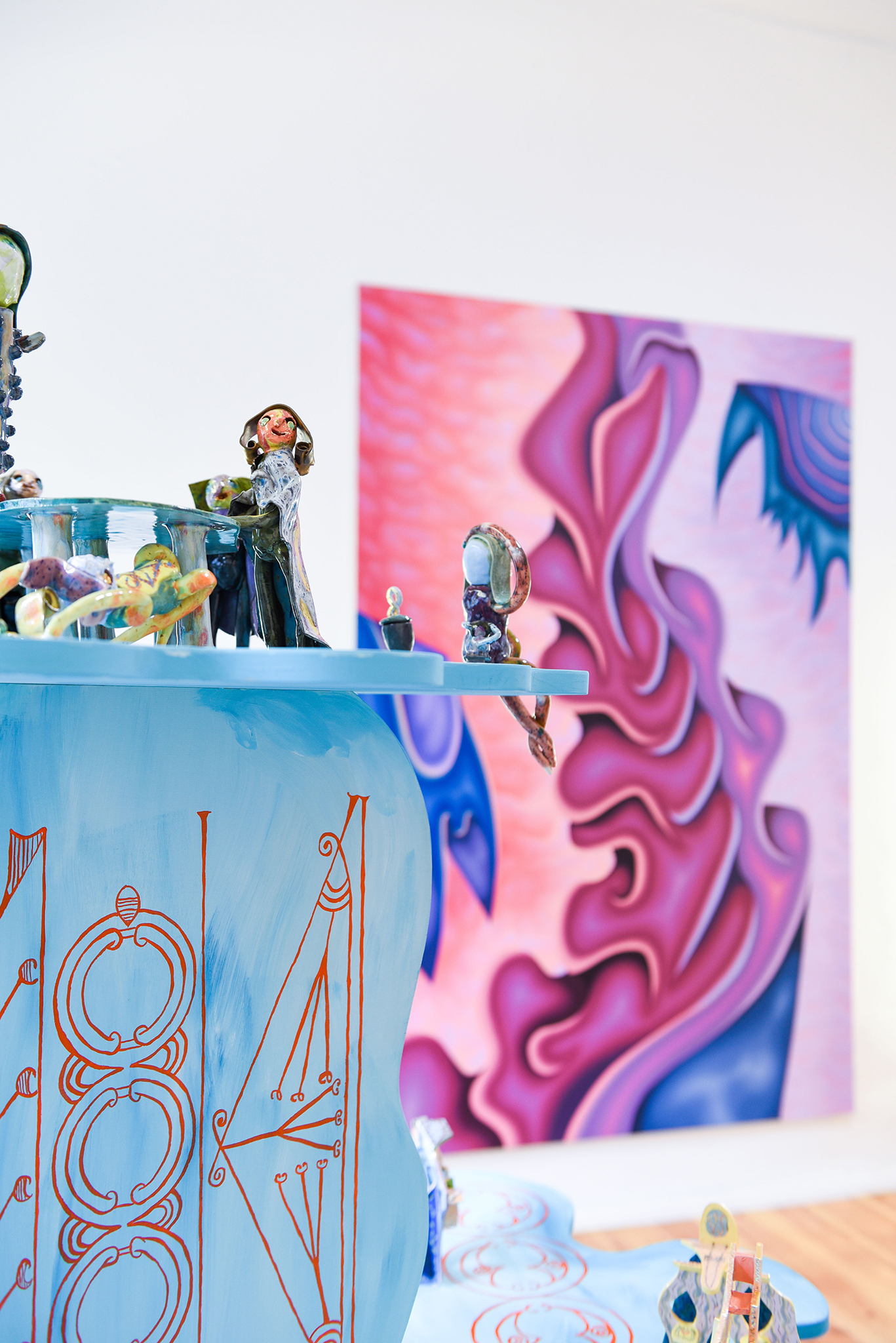
High Weirdness, Solaris Space, Berlin, 2022, Emily Hunt, Nota Flashback Tableau Vivant, 2022, painted table, ceramics & Antonia Freisburger, Kly, 2022, oil on canvas, 240 x 160 cm, Photo: Rosanna Graf, Courtesy: the artists
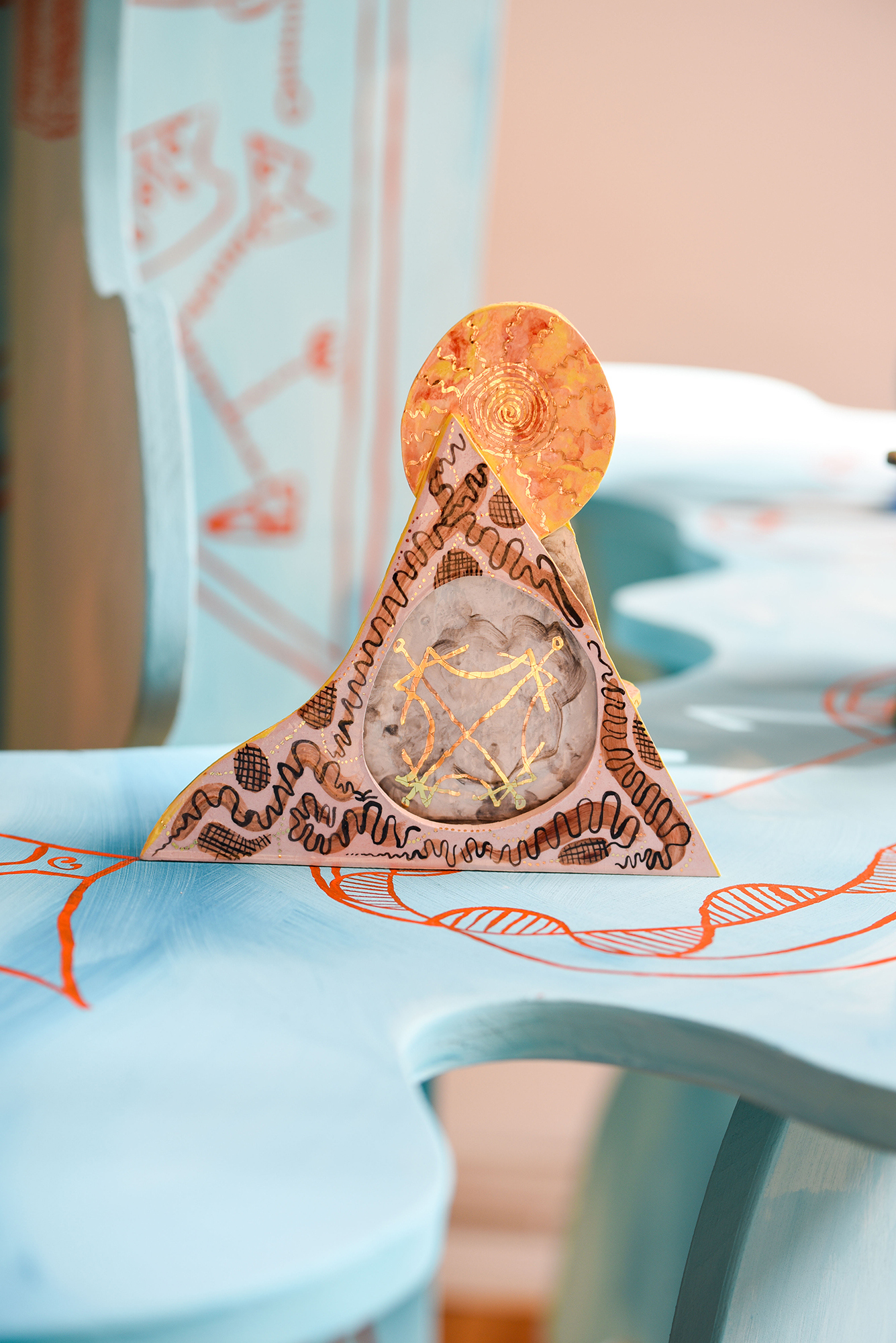
High Weirdness, Solaris Space, Berlin, 2022, Emily Hunt, Nota Flashback Tableau Vivant, 2022, painted table, ceramics, Photo: Rosanna Graf, Courtesy: the artists
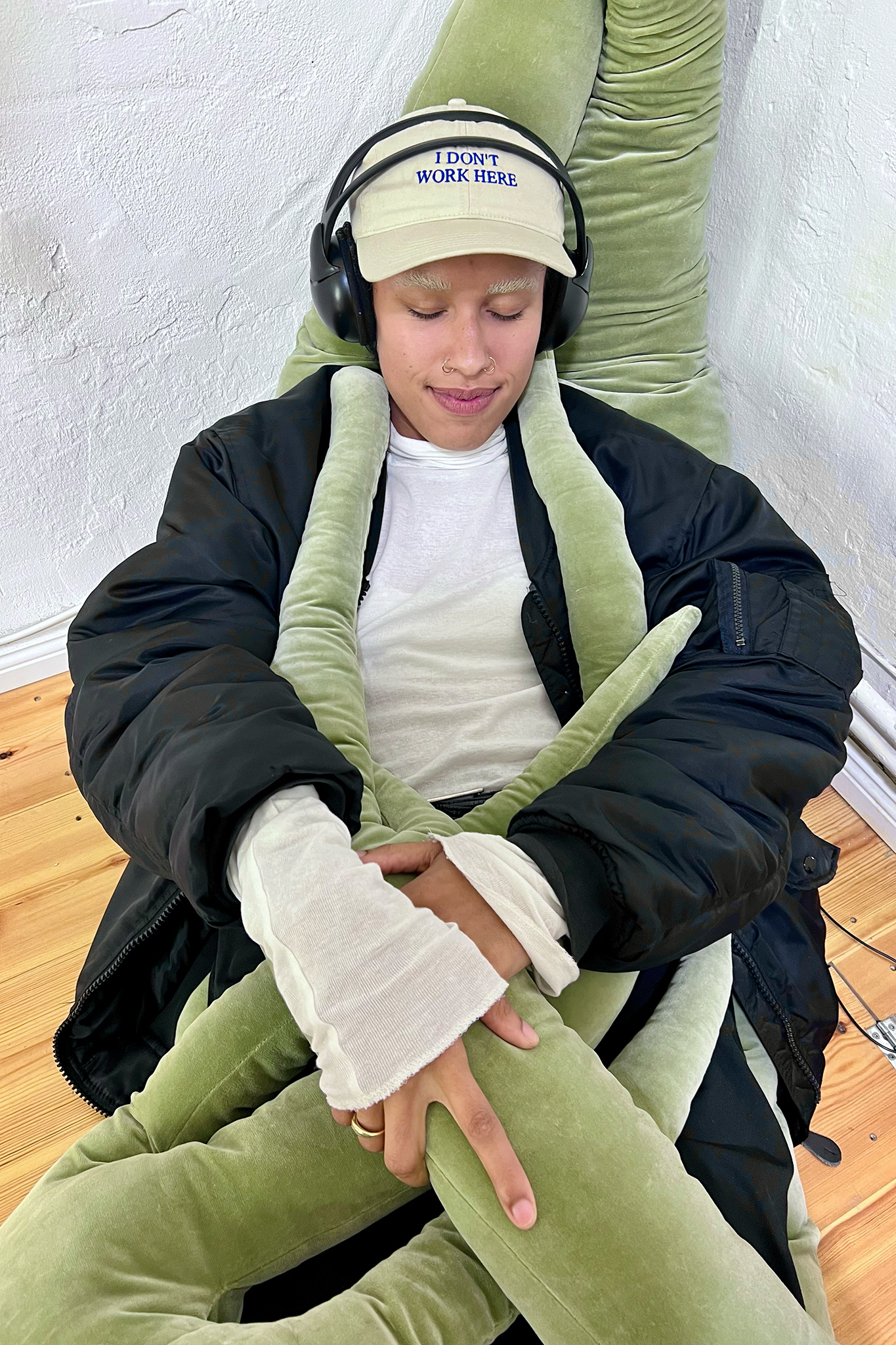
High Weirdness, Solaris Space,Berlin, 2022, Rosanna Graf, Exercising Restraint, 2020, velvet & Schizo Baby Babble, 2022, sound piece, 16 min. (with Paulina Nolte), Photo: Rosanna Graf, Courtesy: the artist
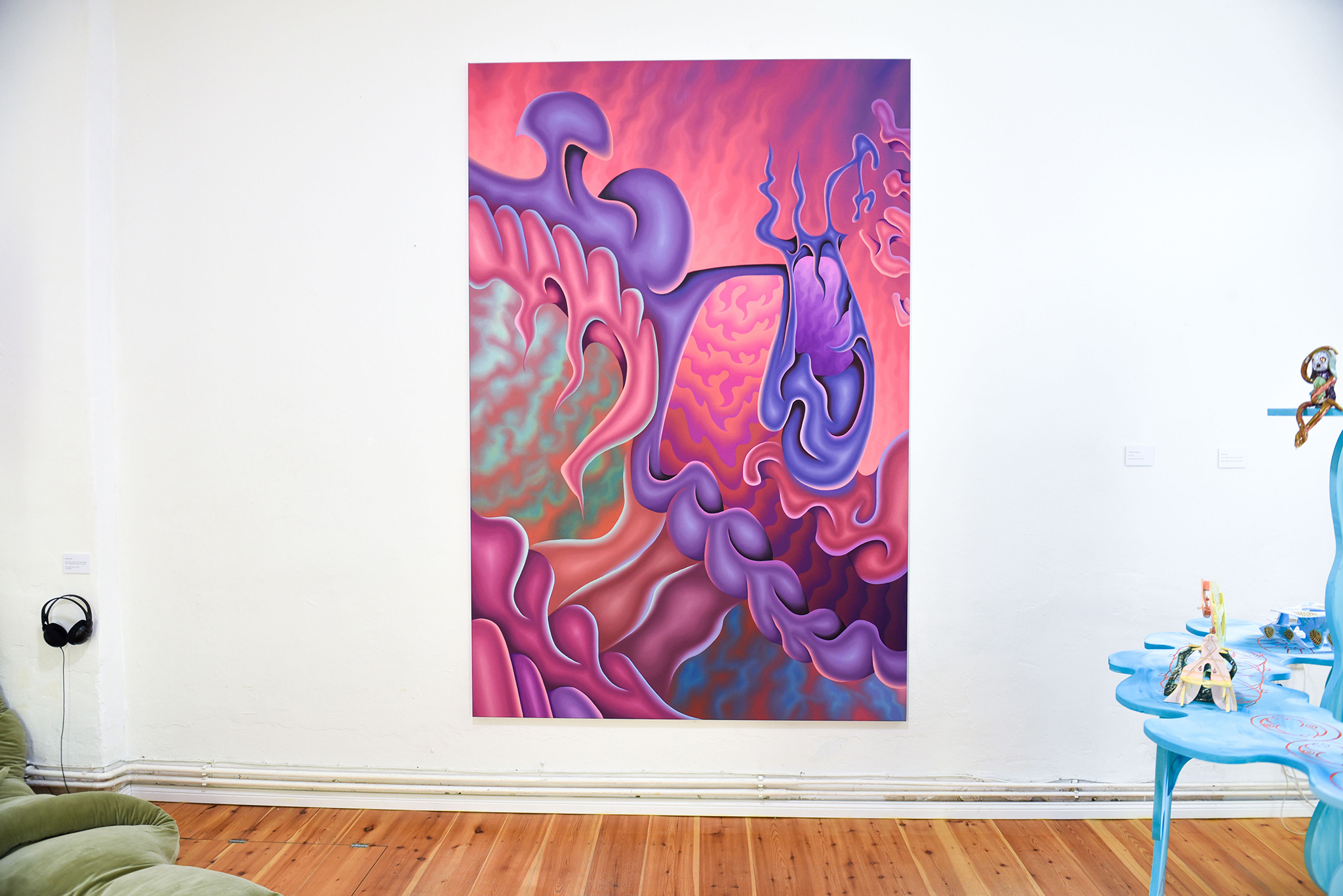
High Weirdness, Solaris Space,Berlin, 2022, Antonia Freisburger, Superfaculag, 2022, oil on canvas, 240 x 160 cm, Photo: Rosanna Graf, Courtesy: the artist
When we consider something to be weird it’s usually a thing we can’t explain, a thing we don’t understand. Weird is unsettling, can be horrifying, but also fascinating. ‘High Weirdness’ deals with the feeling of ‘weird’ interpreted by three different artistic perspectives.
Antonia Freisburger’s paintings remind me of the tempting smoothness and pastel colours of impossibly chewy candies. At the same time I’m terrified of being submerged in their sticky surface which seems to exist in a dimension incomprehensible to human minds. Antonia’s paintings make you loose the sense of time and scale, they conjure feelings like those of cosmic horror- a slip of the mind and suddenly you’re aware and terrified of things that are way beyond your understanding and control. Standing in front of her vast canvases you might get the feeling of being sucked into a strange universe of pulsating colours, of glowing and expanding shapes that are difficult to define with words, as though they don’t belong to earthly vocabulary. They have a sort of viscosity that makes makes you feel like you stuck in there and similarly to escaping the quicksand–the more you try to move the more you become trapped. Antonia’s work makes me think of the idea of ‘Hyperobjects’- a term coined by Timothy Morton to describe entities such as environmental threats (for example radioactivity, global warming, styrofoam but also capitalism) with the impact so massively expanded in time or space, that it can’t be fully grasped by an individual.
The vastness and incomprehensibility of things has been known to instill in us humans the deep desire to domesticate and control.
Emily Hunt’s miniatures of familiar objects, architectural elements, repeated in different scales trigger in me a vertigo of the mind. As with Antonia Freisburger’s work, questions about the relation between scale and an individual’s control, seem to be at the core. In Nota Flashback Tableau Vivant (2022) small figurines, each with their role and character, are part of a mise-en-scène, where they’re sitting in a circle and I wonder if they’re discussing the matters of the universe? Or casting spells? Or maybe they’re just lifeless corpses, waiting to be resurrected? The notion of an eerie animation appears throughout the whole work– intricate ornaments slither on the drippy table, the crooked miniature displays look as though they could start to dance at any moment and the figurines, like puppets embodied with animist life, seem to live in a world that is not part of death or life, but somewhere in-between. For Emily the act of creating is the practice of understanding. Her interest in books, reading and writing manifests itself in complex nested stories, translated into ceramic protagonists and the scenes she stages.
Rosanna Graf also works with characters but in a different manner. The characters created by Rosanna are explorers of states of mind– they are unorthodox psychologists of sorts, wandering through the weirdness of the human psyche. In ‘High Weirdness’ we see the bodiless costumes of Sabina and Toni - protagonists of Rosanna’s video work ‘Cellar Door ‘(2022), that are directly linked to the founding mothers of modern psychoanalysis, Sabina Spielrein and Toni Wolff. The hanging vests Psychoactive Ghost Hunting Attire (Sabina + Toni) (2022) are equipped with a variety of tools, magical objects and keys to non-existing doors. Ghosts in Rosanna Graf’s work stand for things that haunt our presence, repressed parts of our collective unconscious. Toni and Sabina, who (in real life) became ghosts of the past themselves, as they were eclipsed by the male psychoanalysis canon*, reappear in ‘High Weirdness’ as voices in the audio piece Schizo Baby Babble (in collaboration with Paulina Nolte, 2022). As psychoanalysts-adventurers, they conduct research on the inside of a patient’s brain. Haunted by the patient’s ego, neuroses and other oddities of the mind they enter a realm of psychedelic ecstasy. The magic blends into realism with the presence of a psychoanalyst's couch; in ‘High Weirdness’ this is a gigantic velvet mandrake (Exercising Restraint, 2020) – a figure reoccurring in Rosanna’s work. When ingested, this plant served as a gateway to other worlds whilst its supernatural scream was considered deadly. As a gatekeeper and protector, it wraps the listener in a warm and softly enveloping shell to create the perfect base for a deep psychological journey.
The encounter with weirdness can be uneasy but in this unease lies the possibility of hightened experience. From things beyond our understanding to those nestled deep in our consciousness, weirdness is constantly lurking, waiting to cross the thin threshold between the eerie and the familiar.
Gosia Lehmann


